Samskara are the quintessential rites performed in the life of every Hindu. If you are a Hindu or Hinduism lover, you can’t miss these samskaras.
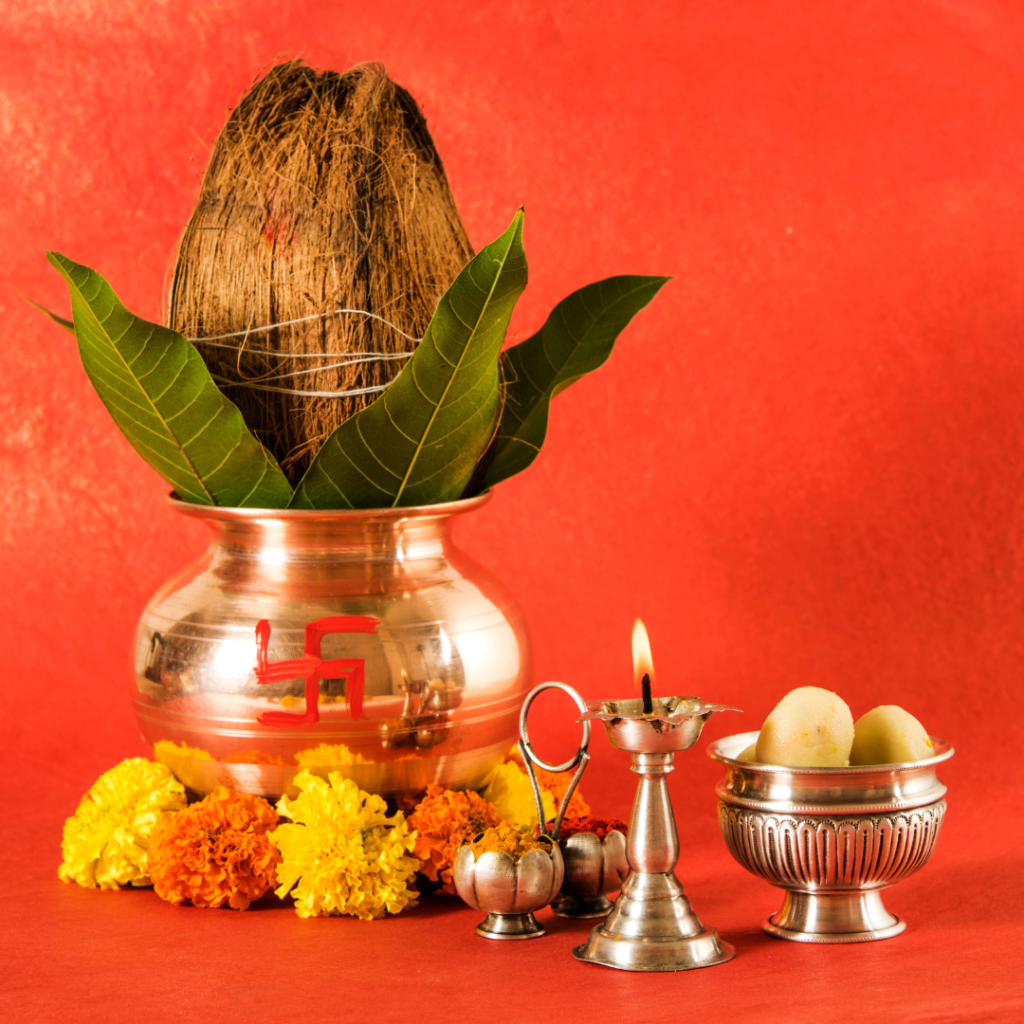
Namaste!
Welcome to www.onindianpath.com, we are here again with an intersting and enthralling topic of Hinduism.
All these samskara are the imprints which define the future and present life of an individual. It influences the nature of person and the state of mind.
Introduction
Samskara are the essential part of Hinduism. Samskara also called Sanskara derived from Sanskrit word SANSKAR meaning impressions or imprints of anything which remains unconsciously in the mind. These samskara are the manifestations in one’s life which shape the ideology, habits, behaviour and tendencies in an individual.
What our Hindu texts say about Samskara?
Rigveda defines samskara as process of purifying and preparing one for future.
Additionally, Dharma sutra and Grhiya sutra says samskara are the crucial sacred rites one must perform. It empowers the life of individual to discover, recognize and reach union of individual to supreme being (Atman with Brahman).
And, Upanishads defines Samskara as medium of growth and prosperity in four aspects of human life: Dharma (righteousness), Karma (work and deeds), Artha (wealth) and Moksha ( salvation).
Ancient text suggests Samskara are religious rites or sacraments to polish one self at different stages of life. They serve spiritual, cultural and psychological purposes.
Conversely, Samkhya Yoga explains Samskaras traits which are inhered into a human and shape the Gunas (qualities). They shape the inner self, desire, sense of responsibility and character.
Even, Patanjali sutra refers Samskara as basis of defining Bhava (attitude) and Bhuddhi (mind) of a person affecting his or her Karmas.
Usually, Samskaras are rites celebrated differently in India. India has diverse cultures so do it has different beliefs and diverse religious patterns.
Subsequently, many parts of southern India perform samskara with yagna and chanting vedic hymns and mantra. Likewise, many diverse cultures at other parts of country perform these samskara as a low key affair with few friends and close family members.
Apparently, different ancient texts suggest different number of Samskara in Hinduism. Mainly, Sage Ved Vyasa presented the most important 16 sacraments and rites in a Hindu’s life.
Garbhadhana Samskara

Garbhdharan Samskara is the foremost rite in Hinduism. Again, these samskara are the pillars of Hinduism. Further, this samskara is a rite of passage, marking the desire of couple to have a child. Vedic context suggests that the hymns and passages are versed before having sex between the couple. Lord Vishnu, Lord Prajapati and Dhatri are prayed.
Pumsavana Samskara
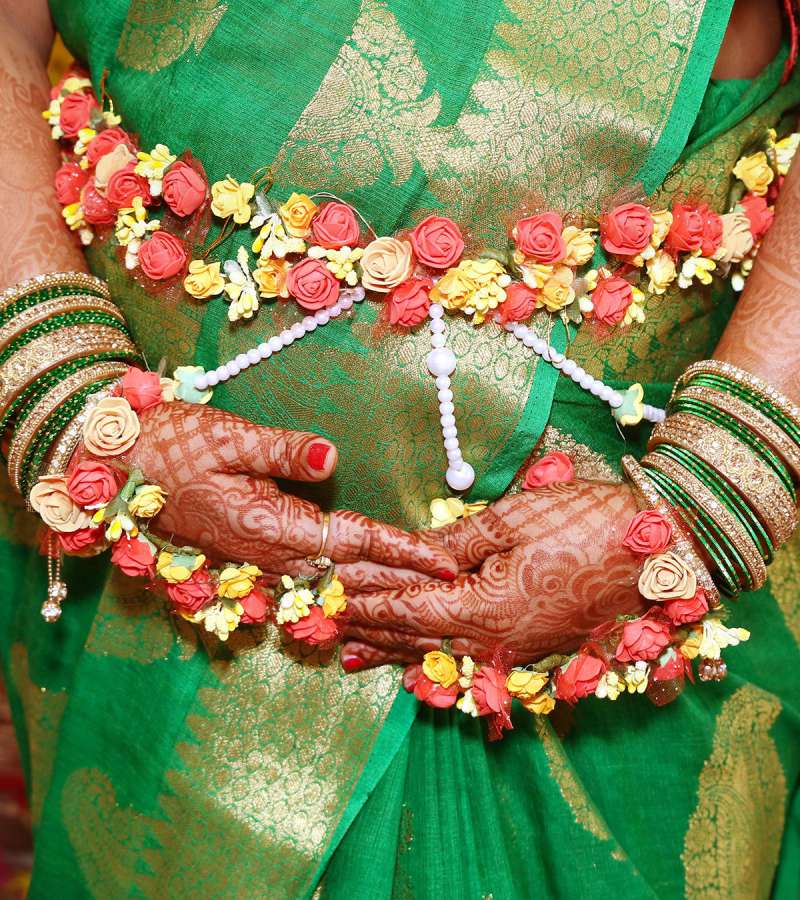
Pumsavana is a word combined from two Sanskrit words : Pums and Savana. Pums mean a strong human body Savana means a ceremony. Hence, it means a ceremony to have a strong human or male body.
Besides, it is more of fetus care, prevention of miscarriage and providing best care to mother and her unborn child in the womb.
Secondly, this rite is carried out in the second trimester of pregnancy to bless the fetus with good development. Mothers are given required herbs and food to avoid miscarriage.
Simantonnayana Samskara
Simantonnayana is similar to baby shower of modern days. Logically, ancient text says that the husband parts the hair of his wife into two halves.
And next, this rite is performed in eighth month of pregnancy for long life of mother and her womb.
Apparently many parts of country celebrate it as Semmant and godhbharai.
Jatakarman Samskara
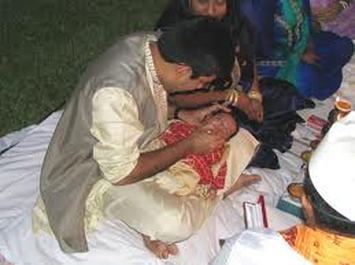
Jata karman samskara means the rite of newly born baby. Firstly, it impacts the bonding of father and his new born child.
Secondly, it it the first post-natal rite where goddess Saraswati is prayed. The father touches and smells his infant and sing mantras into his ears.
Namkarana Samskara
Namkarana Samskara means a ceremony of giving name to the child. It is performed on the 11th day after the birth of Child. Infant is dressed in new attire and given a new meaningful name by the Elders of the family.
Nishkarmana Samskara
Nishkarmana Samskara means taking out the baby to the outside world. His or her parents will take the baby to the nearby temple for the first time after his birth.
Conversely, the father takes out the baby out in the Sun. He chants hymns in his ear to make him shine like Sun. He chants and praise Lord Sun. He also takes him out in moon to get the blessings of Moon.
Annaprashana Samskara
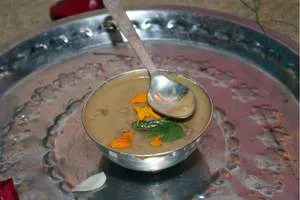
Annaprashana means feeding the food to the baby. Typically, it is marked as the first time feeding the solid food to the baby. Though, it is performed in the sixth month. This ritual is performed to bring good health and physical strength to the baby.
Specifically Brahmin families have big celebrations of this samaskara.
Chudakarna Samskara
Chudakarna also called mundan sanskar, choulam and parojan. In this samskara, the hair and nails are trimmed. This rite symbolises cleansing, renewal and new growth of the child. Typically, the ritual is observed as a passage of purity.
Karnavedhna Samskara
Karnavedhna samskara means ear piercing ceremony. Piercing of ear is done with a gold thread or a silver thread. It symbolises ornamentation of human body. Our earlobes have acupressure points. Piercing helps in developing intelligence and enhancing the immunity against respiratory infections.
Vidyarambha Samskara
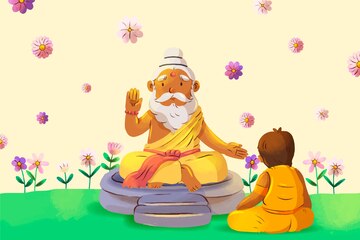
Vidyarabha Samskara represents the starting of formal education of the child. During ancient times, a chid was sent to Gurukul to learn the vedic knowledge. He was under constant supervision and guidance of his Guru (teacher). Goddess Saraswati is worshipped in many parts of India, Lord Ganesha is also prayed in this ritual.
Upanayana Samskara
Sanskrit word Upanayan means the act of leading. Hence, it means a ceremony to bring the disciple near to the Guru. Till date, it is widely performed in Brahmins and other communities. Incidentally, yajnopavitra (a sacred thread) is energized by hymns and chants. Later, it is tied from left shoulder to the waist. For girls, the saree is tied accordingly.
Parishartha Samskara
Vedarambah Samskara or Parishartha Samskara means starting of learning Vedas. Eventually, It was considered a moving towards the higher level of education and intellectual growth of the child.
Keshanta or Ritusuddhi Samskara
Keshanta means getting rid of hair. It is first formal shaving of facial hair of a male child. For female , it is age ceremony, where first mensturation is celebrated. It is a significant transition from childhood to adulthood.
Samavartana Samskara
Samavartana Samskara marks the end of formal education and Brahmcharya. Indeed, it was ceremonial Snana (bath) after returning home from gurukul. From here, the person is ready to move to grihastha ashram (married life).
Panigrah or Vivaha Samskara

Vivaha Samskara is the most celebrated ceremony of Hinduism. It is wedding ceremony and celebrated for several days. We will be covering this in detail in our upcoming blog.
Antyeshti Samskara
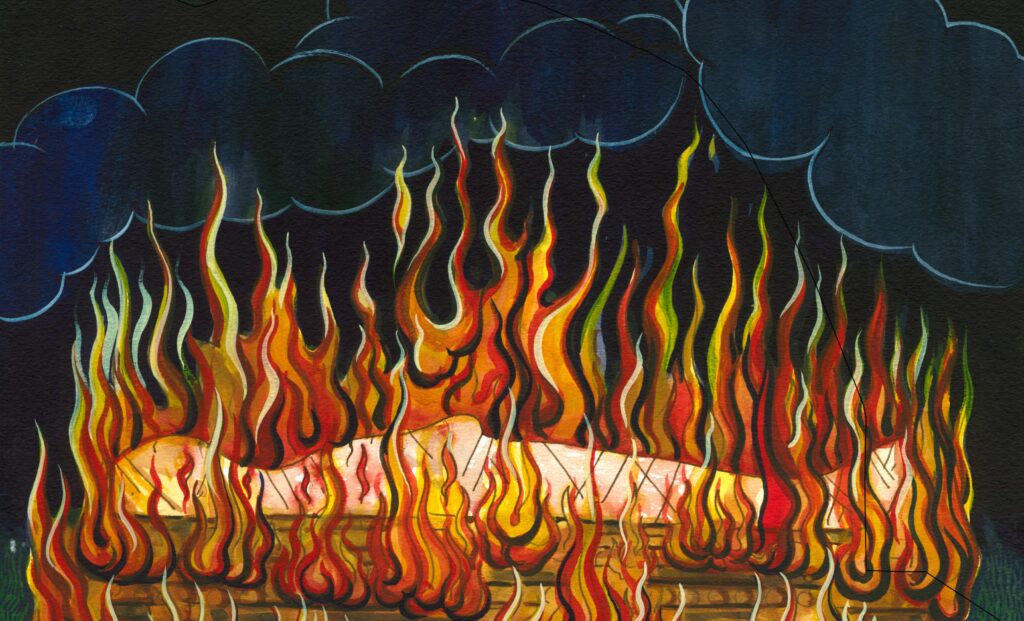
Antyeshti is the word derived from Sanskrit meaning the last rite. It is also called Antim Sankar. Certainly it is funeral rites and practices. Hinduism stats that the human body made up of five elements : air, water, earth, fire and space. The last rite returns the human body into these five elements. The soul is immortal and it get returned to Brahman.
Conclusion
Lastly, I would conclude the write up with a positive note. If you are a lover of Hinduism or Hindu, you should not miss these Samskara in your life. Have a blessed time ahead.








Thank you for sharing such informative knowledge. I am enlightened to know about samskara.I am a great fan of Hinduism.Keep up the good work.
Your valuable feedback means a lot to us.Thank you so much Ms. Saachi. For more information on Hinduism and Spirituality keep following us.
It’s truly wow to see such a nice description on important aspects related to Hinduism.
May you continue working on the same with same passion.
Thank you Mr. Rajendra for your kind words. Your encouraging words are motivating. For more information on Hinduism and spirituality, kindly keep following us.
Honestly it’s a wow concept
I really like to read about samskara have such a great wide knowledge about hindus culture thank you Mrs. Akansha ji
Keep working on such a hindusim concept I really like to read our hindu aspect good to have a wide knowledge about hindus culture hope so soon you will be coming with a new concept for hindu lovers
Thank you so much for your encouraging words Ms. Shivani. We will keep working hard to unveil the secrets of Hinduism and Spirituality to you. Keep following us.